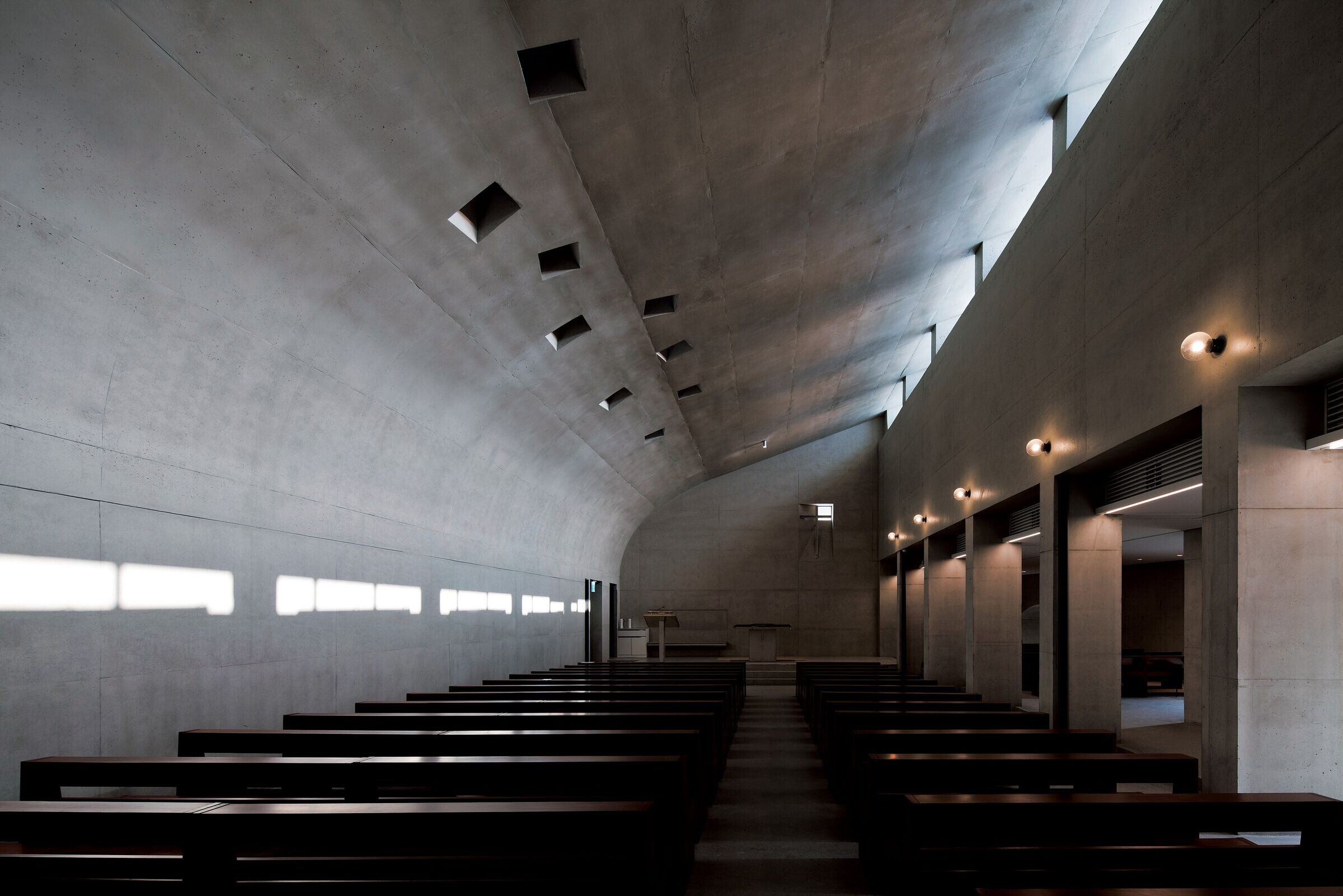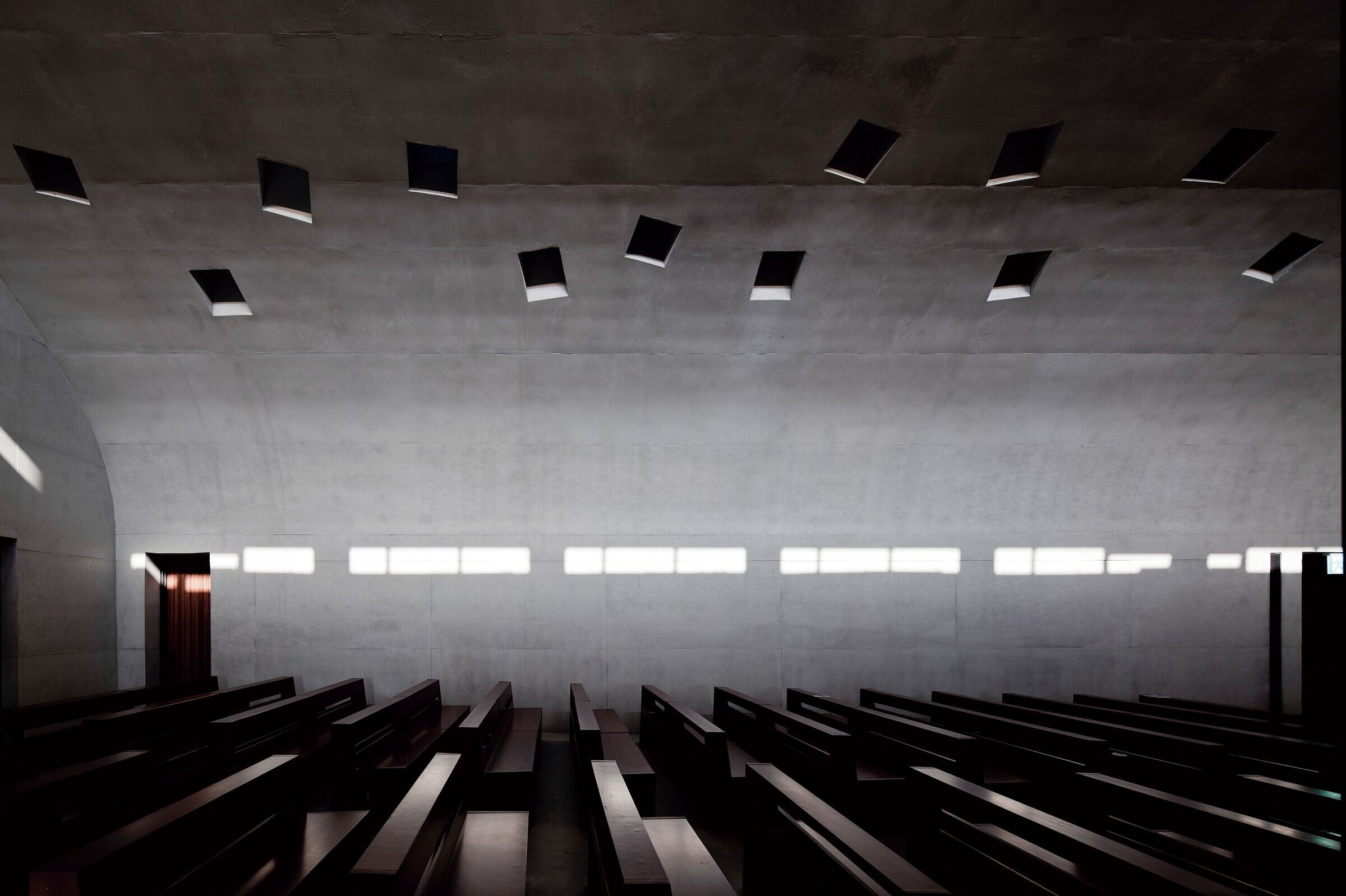This is a shrine dedicated to Marco Shin Seok Bok (1828-1866). An ordinary person, who sold salt and yeast, became a martyr during the Byeongin Persecution of 1866. In 1897, a small Catholic church was first built here on his birth place but was later destroyed. In 1938, a hanok cathedral was built in a reduced scale of the original building and is now designated as a cultural heritage.
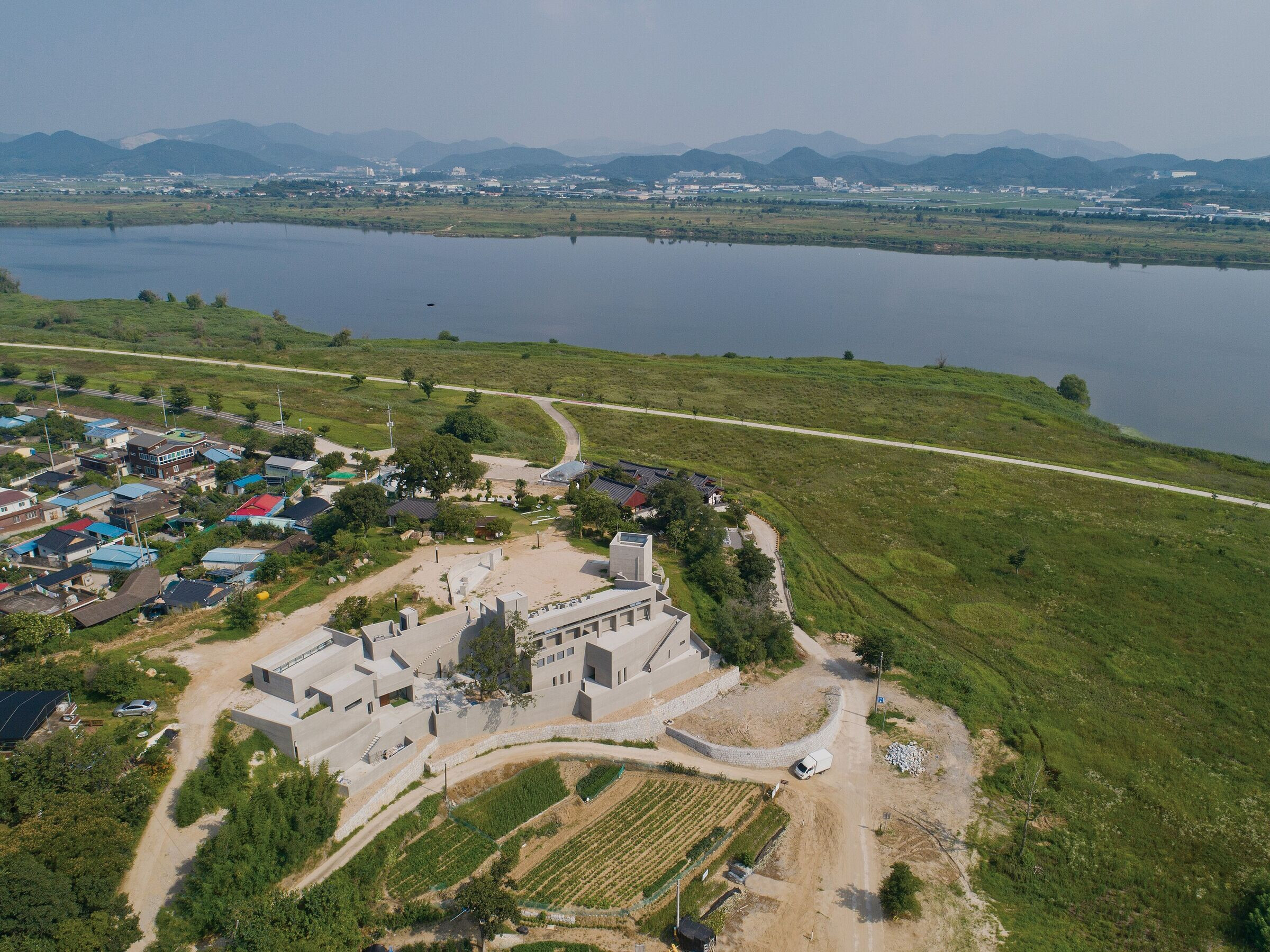
This land was originally a hill situated at the curve of Nakdong River, but now rests on dry land due to land fill. My hope is that the original landscape will be recovered at some point in the future. In addition to the cathedral, there were a few recent buildings that respected the topography of the site. The hanok cathedral is a humble, but meaningful and dignified structure. A new building should add to the sense of the sacred. It should be Biblical Landscape, a term that came to mind as I thought of the Woodland Cemetery.
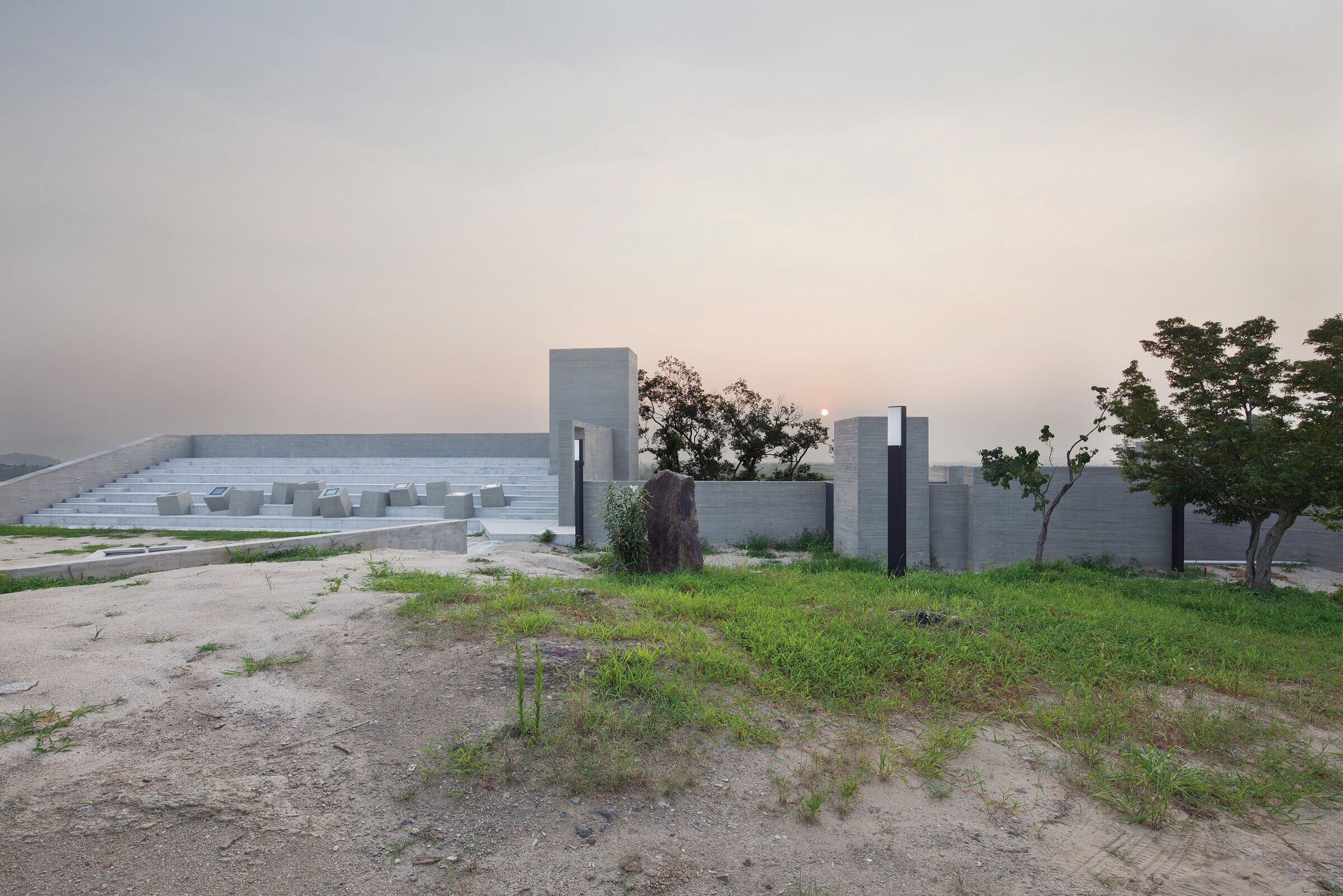
First, to shape the entire land, I decided to build a Via Dolorosa, the fourteen Stations of the Cross, that are commonly depicted on the walls of a Catholic church. Using the pre-existing lots on the site, I would turn each of the fourteen Stations of the Cross into a place on the land and connect them.
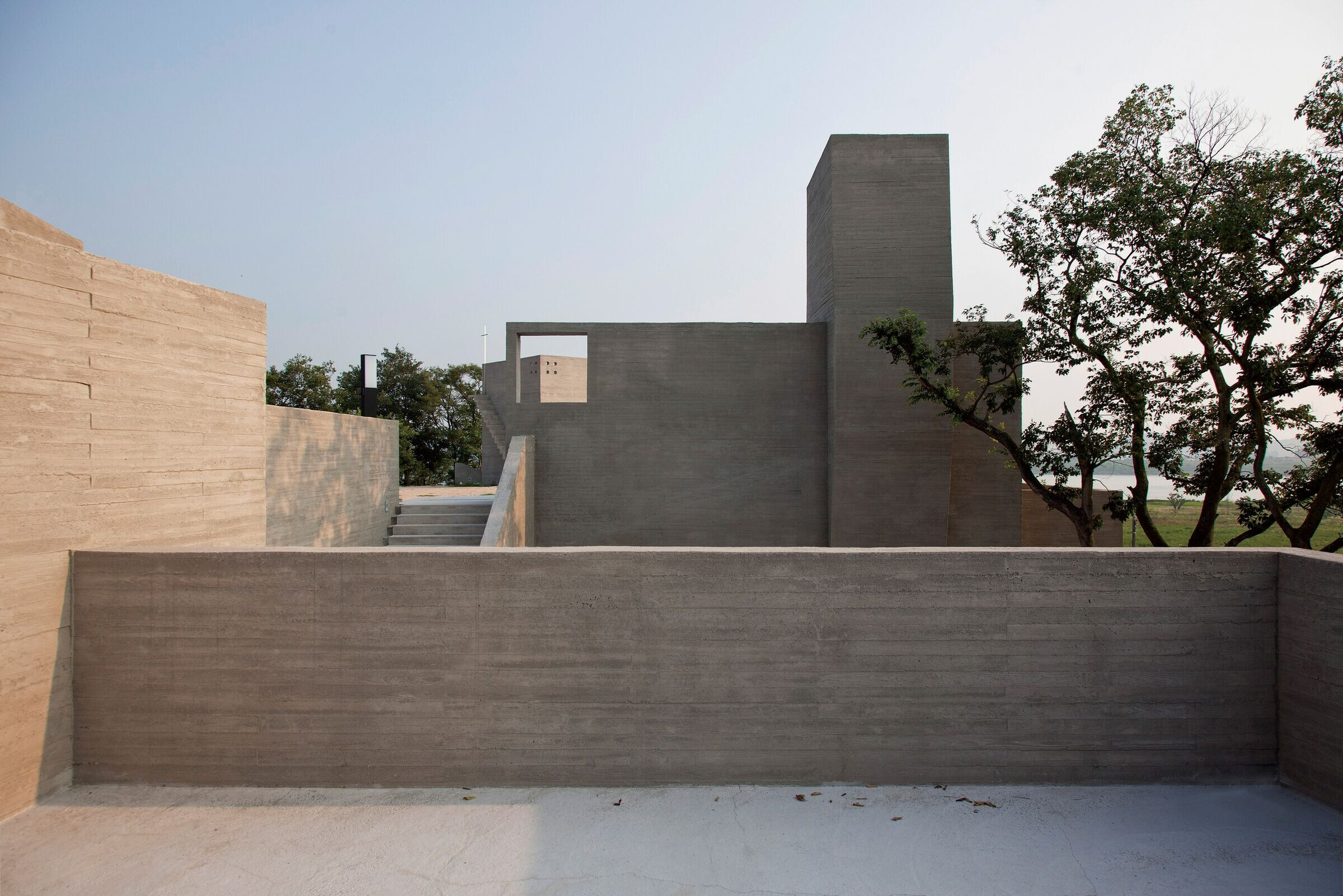
The final journey of this walk is completed by the water tank at the boundary of the site. The new commemorative church is built on the western slope as part of the cliff side landscape. The interior provides an experience of light and darkness and of tranquility and tension. A relatively large yard is created on the top to be used for pilgrimage events.
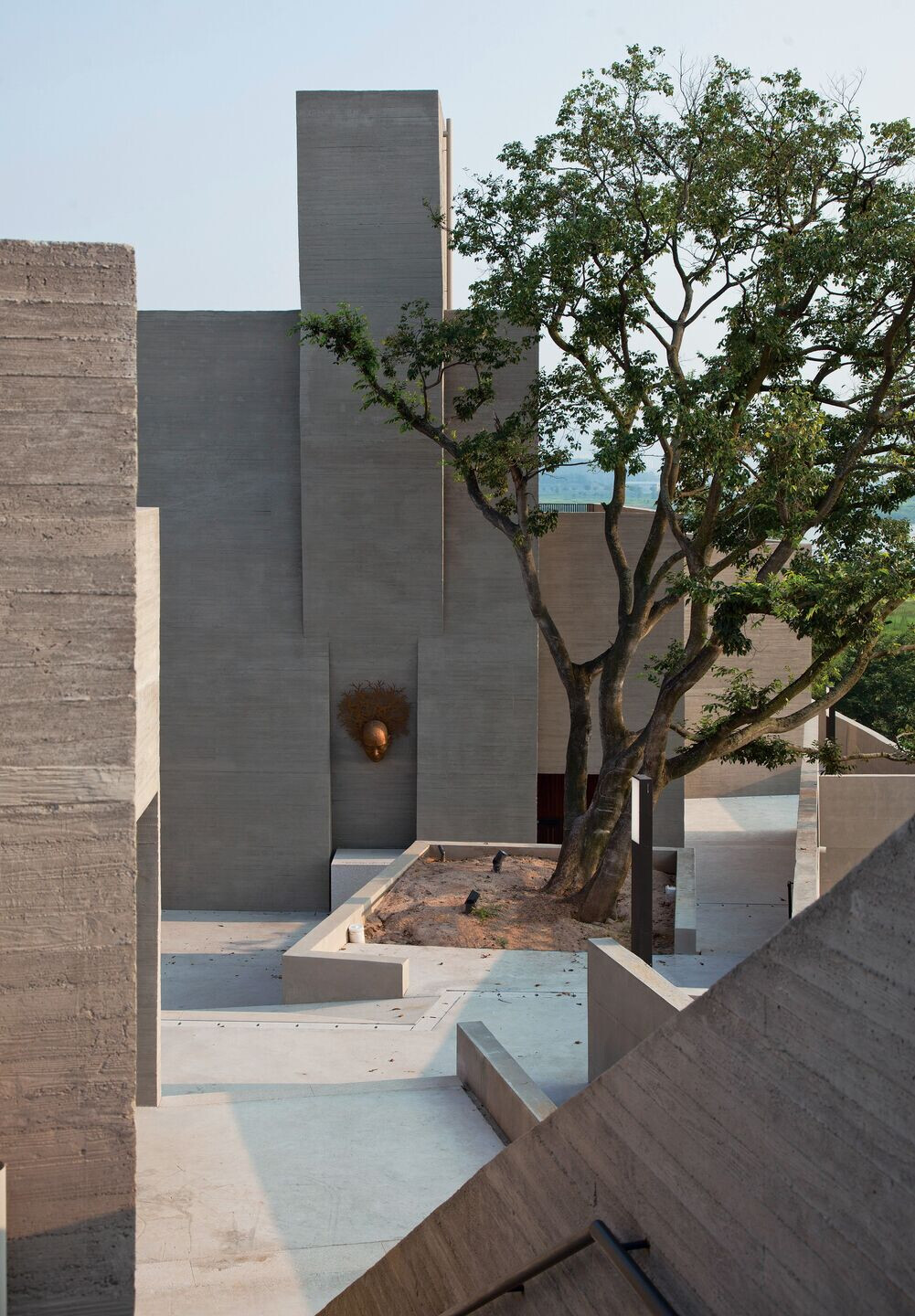
Steps, banisters, a bell tower and other structures become part of a spatial tension. The journey from the entrance, through the Way of the Cross, to the commemorative church, and back to this yard— a long encounter with different events and scenes— constructs a road of asceticism. Through the cultivation of the road, the Biblical Landscape will be completed. The road is the most important theme of the Myungrye Sacred Hill.
